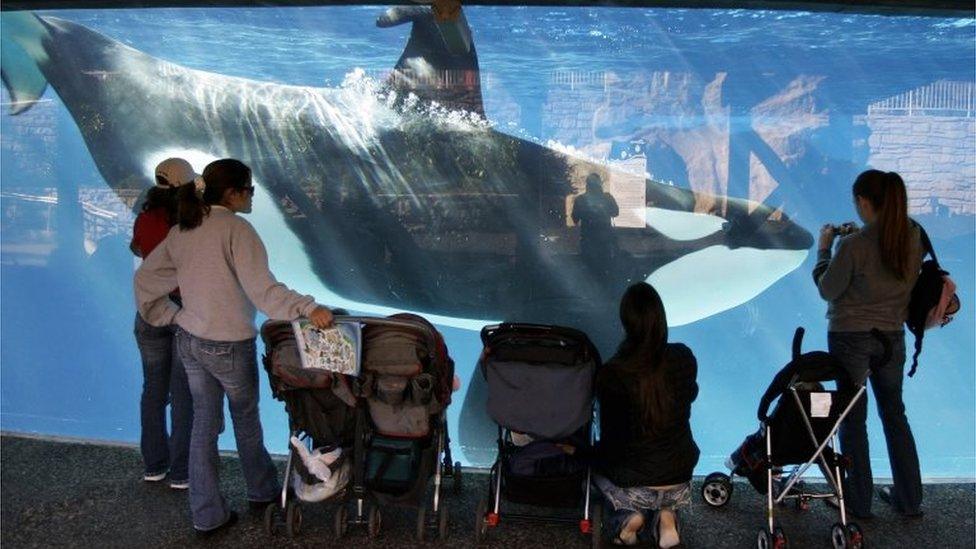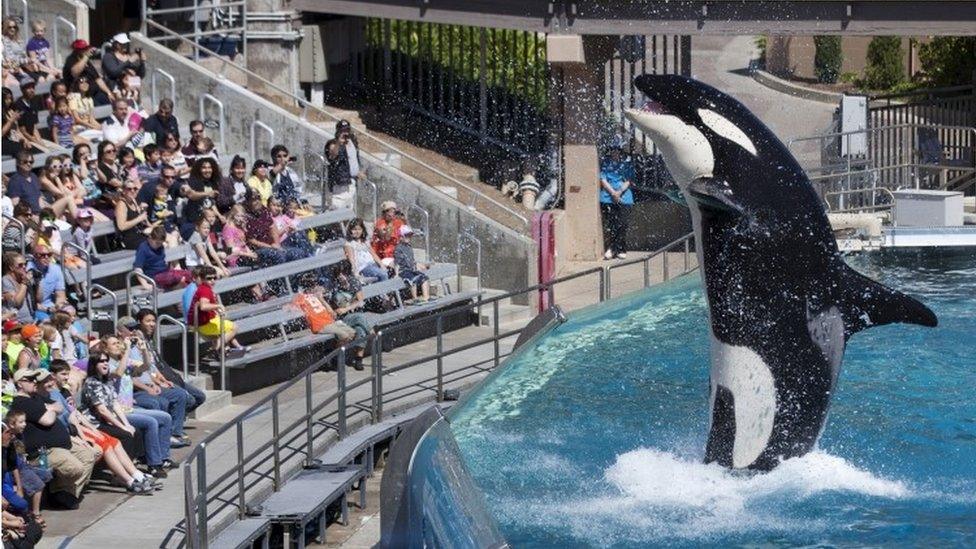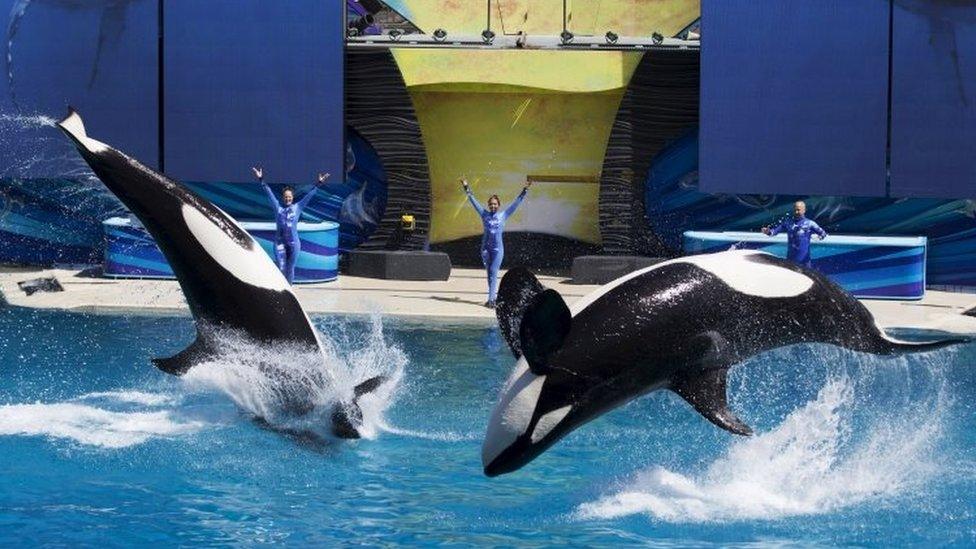SeaWorld admits its employees spied on animal rights groups
- Published

SeaWorld is trying to salvage its reputation after public anger over its treatment of whales
US marine amusement park SeaWorld has admitted some of its employees posed as animal activists to spy on its critics.
SeaWorld CEO Joel Manby said in a statement , externalon Thursday that his company would no longer use such practices.
The revelation came out after a worker from the San Diego park was discovered posing as an activist last year.
The company has faced intense criticism by animal rights activists who say it is enslaving marine animals at its 11 parks across the US.
"The board has directed that the company's management team end a practice in which certain employees posed as animal rights activists," Mr Manby announced on Thursday.
He said the decision to send people undercover was "to maintain the safety and security of company employees, customers, and animals in the face of credible threats that the company had received".

The impact of captivity on the orcas featured in the critically-acclaimed 2013 documentary Blackfish
SeaWorld employee Paul McComb was briefly suspended in July after the People for the Ethical Treatment of Animals (PETA) accused him , externalof trying to incite violence among peaceful protesters whilst posting as an activist.
But SeaWorld announced on Thursday that he has since returned to work in a different department.
PETA says the company's refusal to dismiss Mr McComb shows that it condones corporate spying.
SeaWorld has been struggling with falling visitor numbers across its parks in the US since a critical documentary film, Blackfish, was released three years ago.
In December it announced plans to phase out controversial public displays by killer whales, which have been the centrepiece at three parks operated in California, Florida and Texas.
Animal rights activists argue keeping the mammals - also known as orcas - in captivity is cruel and unnecessary.
- Published10 November 2015
